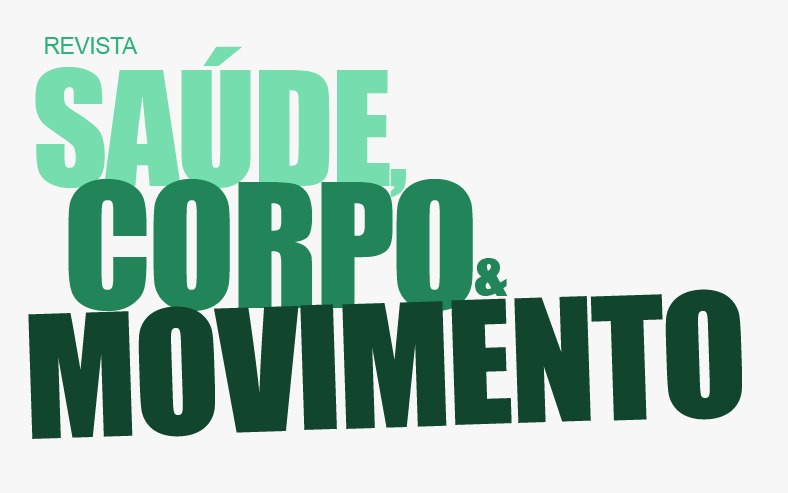Effect of counterresistance training on muscle strength gain in individual with reumatóide arthritis: a literature review
Keywords:
Rheumatoid arthritis, Muscle strength, Resistance trainingAbstract
Among the consequences of Rheumatoid Arthritis (RA) in the lives of affected individuals, we can mention the decrease in muscle strength and consequent decrease in the ability to carry out day-to-day activities. As Counter-Resistance Training (TCR) can modify muscle responses and adaptations, it is inferred that it may be of considerable importance to determine improvements in muscle strength in patients with RA. This time, the objective of the present study was to evaluate, based on a literature review, the effectiveness of TCR in promoting adaptations on the muscular strength of individuals with RA. Therefore, after defining the search terms and criteria for inclusion and exclusion, searches were carried out in the PubMed database. After filtering mechanisms, five studies were selected for this review. The analysis of selected articles indicated that TCR is effective in increasing strength in individuals with RA. Strength gains ranged from 12.1% to 59%, when comparing the pre and post intervention moments. Additionally, it should be noted that the intervention groups showed better results than the control groups in all studies. Thus, the results of the present study indicated that the application of TCR protocols were effective in increasing muscle strength in individuals with RA.
References
BAILLET, A. et al. Efficacy of resistance exercises in rheumatoid arthritis: meta-analysis of randomized controlled trials. Oxford, England: Rheumatology, v. 51,3: 519-27. 2012.
BEENAKKER et al. Patterns of muscle strength loss with age in the general population and patients with a chronic inflammatory state. Aging Research Review, v. 9, 431-6, 2010.
BRASIL. Ministério da saúde. Protocolo clínico e diretrizes terapêuticas da Artrite Reumatoide. 2021.
COSTA, G. P. N. et al. Efeitos da oclusão vascular parcial no ganho de força muscular. Acta Fisiatr, v. 19, 192-197, 2012.
FLECK, S J.; KRAEMER, W. J. Fundamentos do treinamento de força muscular. 4ª edição. Porto Alegre: Artmed, 2017. 471 p.
FLINT-WAGNER, H. G. et al. Assessment of a sixteen-week training program on strength, pain, and function in rheumatoid arthritis patients. Journal of clinical rheumatology: practical reports on rheumatic & musculoskeletal diseases, v. 15,4. 2009.
HAKKINEN, A. et al. A randomized two-year study of the effects of dynamic strength training on muscle strength, disease activity, functional capacity, and bone mineral density in early rheumatoid arthritis. Arthritis and rheumatism, v. 44,3. 2001.
HAKKINEN, A. et al. A home-based two-year strength training period in early rheumatoid arthritis led to good long-term compliance: a five-year followup. Arthritis & Rheumatism, v 51: 56-62, 2004.
HEYWARD, V. H. Avaliação física e prescrição de exercício: técnicas avançadas. 6ª edição. Porto Alegre: Artmed, 2013. 476 p.
KNUTTGEN, H.G.; KRAEMER, W.J. Terminology and measurement in exercise performance. Journal of Applied Sport Science Research, v. 1: 1-10, 1987.
LIXANDRÃO, M.E. et al. Magnitude of Muscle Strength and Mass Adaptations Between High-Load Resistance Training Versus Low-Load Resistance Training Associated with Blood-Flow Restriction: A Systematic Review and Meta-Analysis. Sports Med, v. 48, p. 361-378. 2018.
LOURENZI, F. M. et al. Effectiveness of an overall progressive resistance strength program for improving the functional capacity of patients with rheumatoid arthritis: a randomized controlled trial. Clinical rehabilitation, v. 31,11. 2017.
MACEDO, A.G. et al. Effects of exercise training on glucocorticoid-induced muscle atrophy: Literature review. Steroids. 2023.
RODRIGUES, R. et al. Low-Load Resistance Training With Blood-Flow Restriction in Relation to Muscle Function, Mass, and Functionality in Women With Rheumatoid Arthritis. Arthritis care & research, v. 72,6: 787-797. 2019.
ROONEY, K. J. et al. Fatigue contributes to the strength training stimulus. Med Sci Sports Exerc. 26 (9): 1160-64. 1994.
SCHOTT, J. et al. The role of metabolites in strength training. II. Short versus long isometric contractions. Eur J Appl Physiol Occup Physiol. 71 (4): 337-41. 1995.
STRASSER, B et al. The effects of strength and endurance training in patients with rheumatoid arthritis. Clinical rheumatology v. 30,5 (2011): 623-32. 2010.
SUL, B. et al. Twelve Weeks of Strengthening Exercise for Patients with Rheumatoid Arthritis: A Prospective Intervention Study. Journal of clinical medicine, v. 9,9 2792. 29. 2020.




